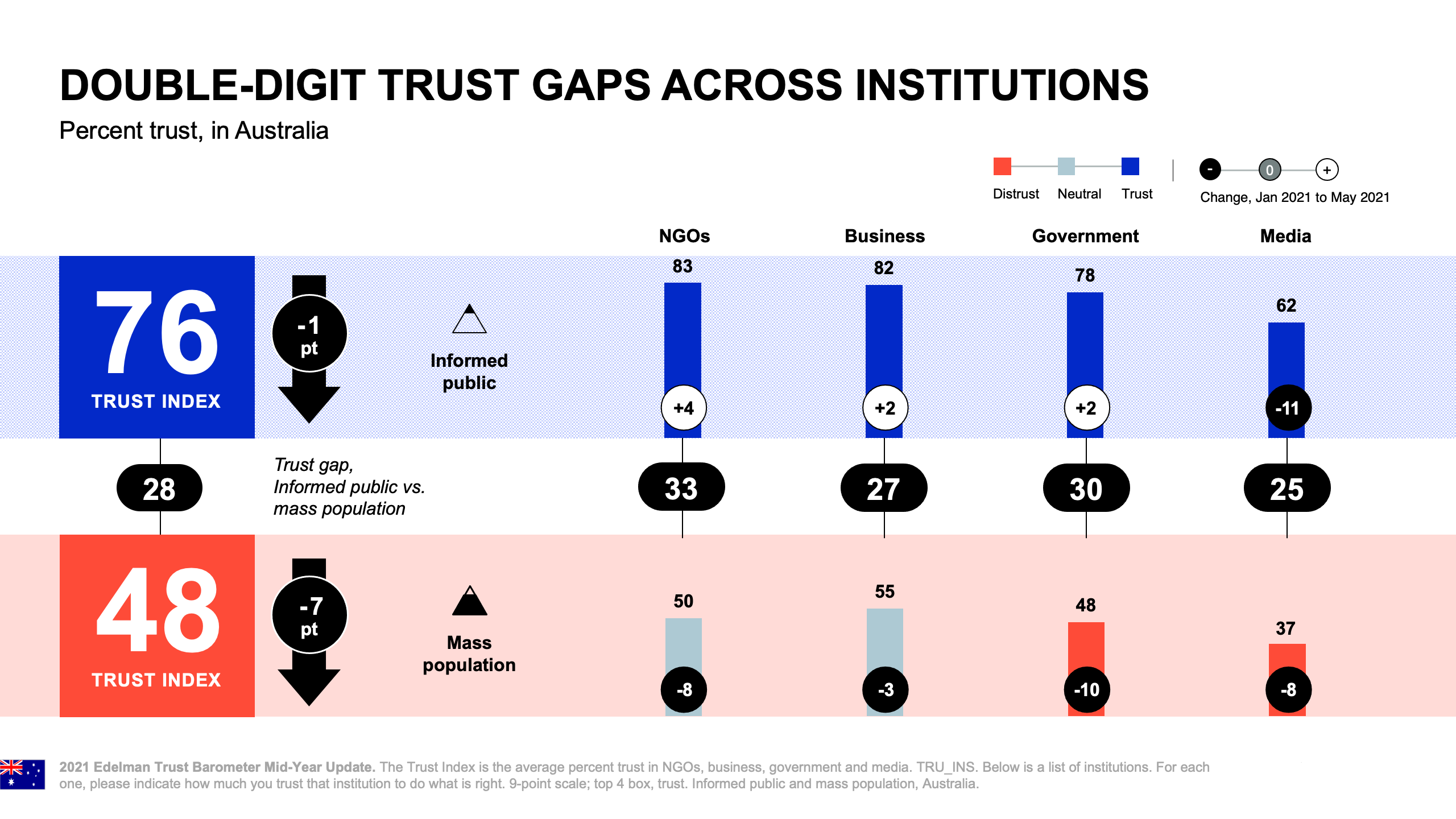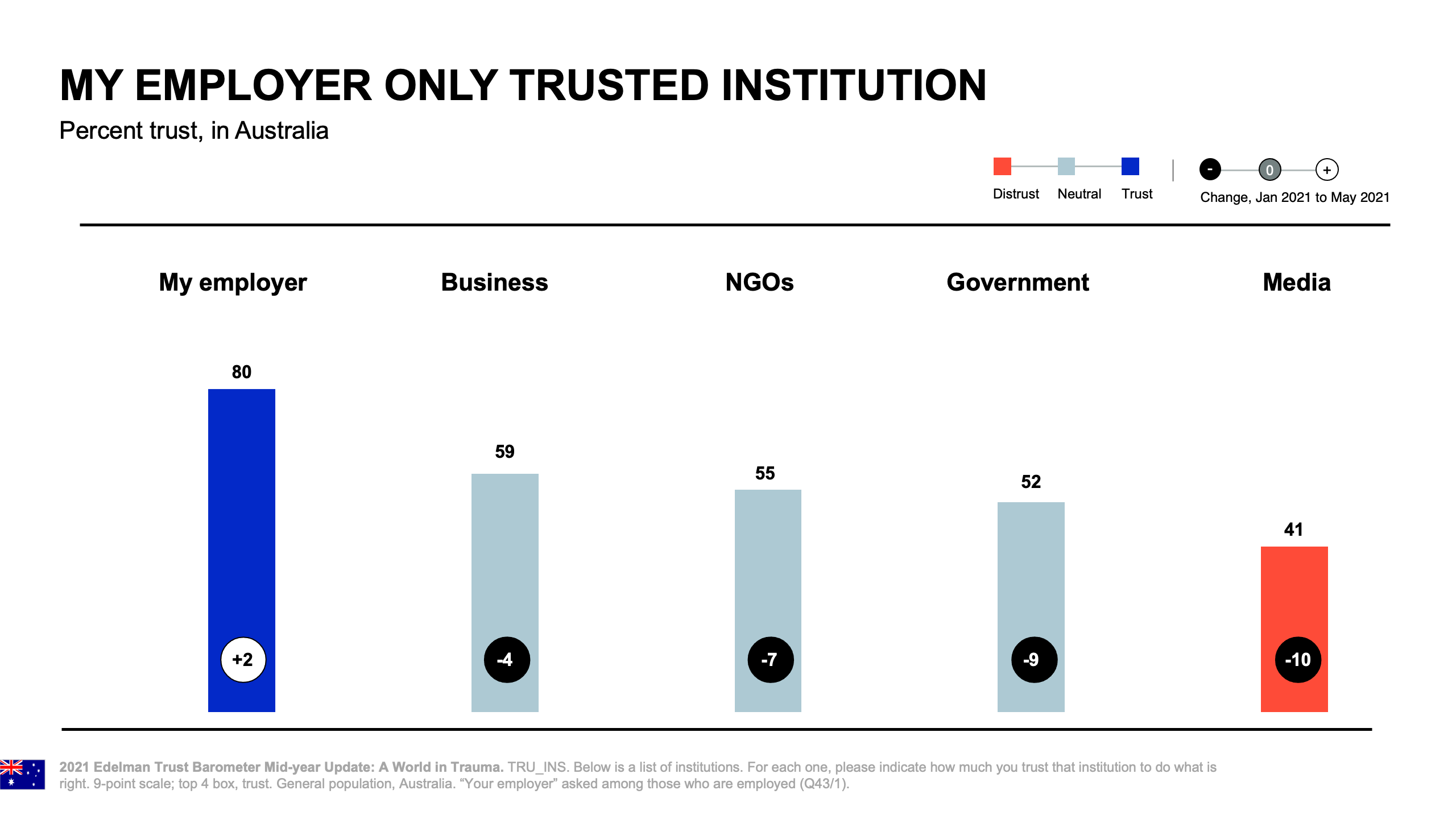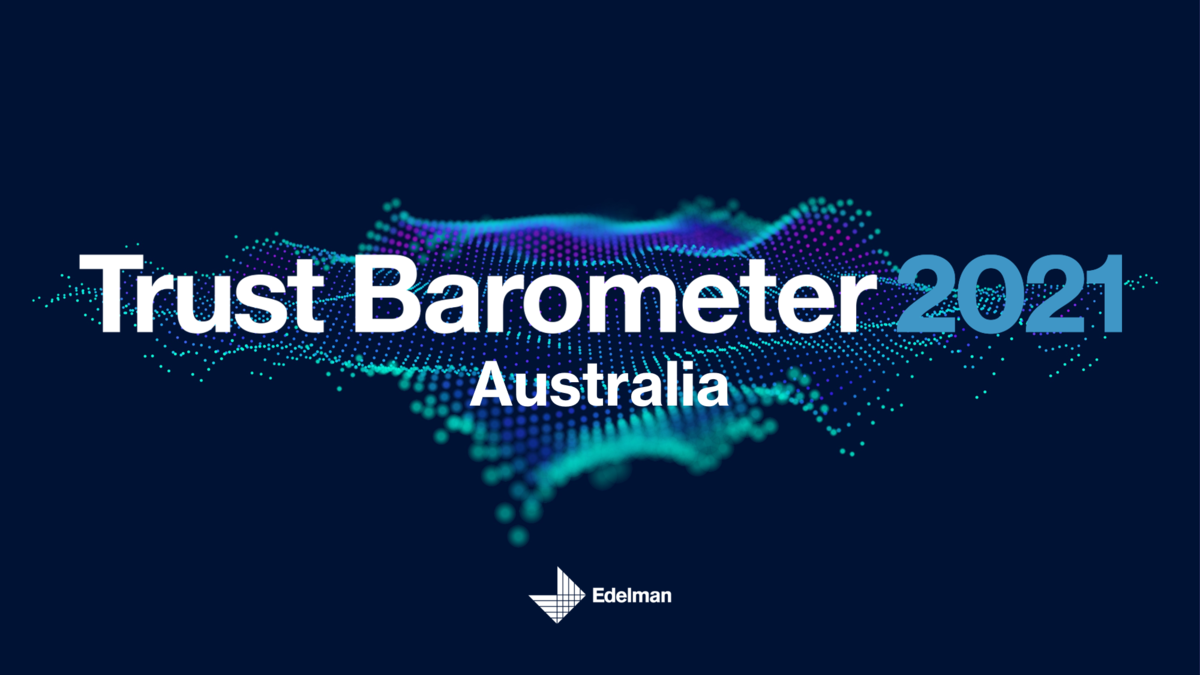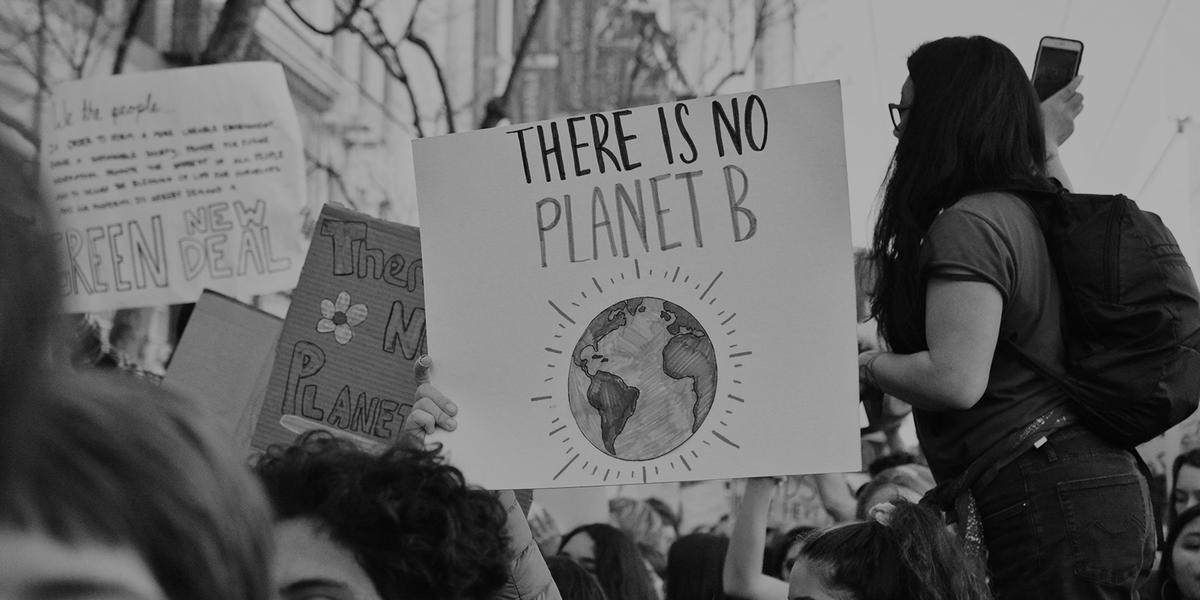When we unveiled the findings of Edelman’s annual Trust Barometer in Australia earlier this year, we were admittedly a bit surprised to find all-time-highs in trust across every institution we study – business, government, media, and NGOs – particularly given the negative trends in trust we had seen elsewhere around the globe.
But as we sifted through the data and reflected on the context around when the annual survey was in field (Oct-Nov 2020), the logic stood up. At the time, there was confidence in Australia’s economic recovery, the virus was very much under control, and life as we knew it pre-pandemic was, in many ways, returning. In spite of this, however, our unique brand of Aussie skepticism kicked in, and we asked ourselves at the time: Are these levels of trust sustainable? Could it be that Australia is in a “trust bubble”?
Turns out, it appears our suspicions were well-founded.
Edelman’s most recent Australian survey, which measured the levels of trust in Australia’s institutions at the end of May 2021, shows trust fell sharply across all four institutions: media (-10 points), government (-9 points), NGOs (-7 points) and business (-4 points). These results dramatically strip away most of 2020’s gains, pulling government, business and NGOs down from "trusted" standing to "neutral”, while media plunged into “distrusted” territory.
When we reflect on the first half of 2021, perhaps it’s less surprising that public trust has taken a hit.
Snap lockdowns continue to chip away at Australia’s collective patience. Challenges with the vaccine rollout, from high hesitancy rates to low supply and lack of urgency, raise questions over the operational management of our Covid-19 exit plan – not to mention the sustained public discord between Federal and State governments. High-profile battles between industry and regulators continue to play out, whether that’s AUSTRAC’s march on financial crime or the ACCC’s gridlock with tech platforms that underscored how vulnerable the public’s access to information can be. Women’s rights again took centre stage with new abuse allegations in Canberra, the formation of March4Justice, and the formation of a Women’s Cabinet. And an even sharper light was cast on the wider systemic prejudices and injustices that plague our institutions, and specifically how they acknowledge the rights of Indigenous Australians.
And perhaps it is for these reasons that our mid-year survey confirmed an alarming trend we’ve seen in Australia – as the country again recorded the largest trust inequality anywhere the world. With a whopping gap of 28 points between the trusting informed public (well-informed adults in the top income and educational brackets) versus the more cynical mass population – the story of Trust in Australia is now one of two divergent realities.

While this gap is not new to Australia, it’s widening at a worrying pace. For our institutions it brings an additional layer of complexity as they try to share information and communicate effectively with two distinct audiences: one that trusts, and one that doesn’t. In a world still reeling from the crisis of pandemic, failure to navigate these waters adroitly can translate to devastating, real-life impact – for example, consider how rampant vaccine disinformation has disproportionately impacted uptake among economic and racial minority groups.
But amid what seems to be a dark future, there are signs of hope.
“My Employer” emerges as the only trusted institution, climbing 2 points to a staggering 80 per cent, suggesting employers are in a significantly advantageous position to address larger social problems by providing trustworthy information and guidance to their employees. But overreliance on employers as a savior is an unstable and unsustainable formula; they cannot go it alone.

Expectations on business to solve societal problems are already at extreme highs. Sixty-one per cent of respondents believe Australia will not be able to overcome our challenges without corporate involvement. So, where to from here?
It’s clear employers and business must continue to lead on societal issues, and join in coalition with government, NGOs and media to find a common purpose. But most importantly, for our institutions, now is the time to double down on a bias toward action. A new paradigm was borne in the onset of the pandemic, and trust was built as regular and transparent communication demonstrated leadership and accountability amid the chaos. But with the full scale and impact of the pandemic now more clearly in focus, communication alone cannot solve the complex, enduring problems our society continues to face.
Will a renewed bias toward action be what it takes? For our institutions in Australia, this is yet to be seen, and it must be their focus if they wish to regain the faith of a nation.





